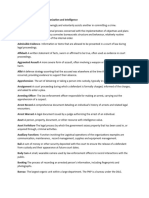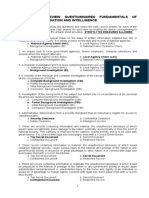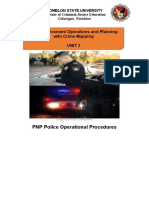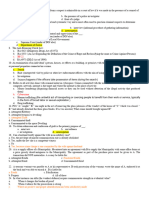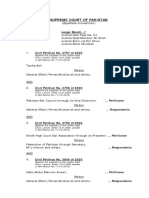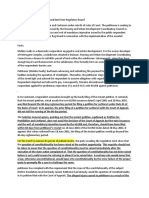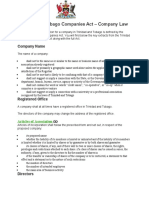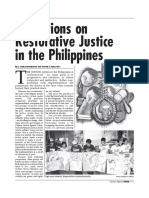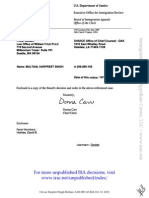0% found this document useful (0 votes)
19 views5 pagesJargon in Police Report Writing.
The document provides definitions of various legal terms and jargons used in law enforcement, sourced from the PNP Police Operational Procedures and the PNP Criminal Investigation Manual. Key terms include arbitrary detention, arrest, arson, bribery, and evidence, among others, which are essential for precise communication in law enforcement contexts. Understanding these terms is crucial for effective oral and written discourse in the field.
Uploaded by
Tan MonCopyright
© © All Rights Reserved
We take content rights seriously. If you suspect this is your content, claim it here.
Available Formats
Download as DOCX, PDF, TXT or read online on Scribd
0% found this document useful (0 votes)
19 views5 pagesJargon in Police Report Writing.
The document provides definitions of various legal terms and jargons used in law enforcement, sourced from the PNP Police Operational Procedures and the PNP Criminal Investigation Manual. Key terms include arbitrary detention, arrest, arson, bribery, and evidence, among others, which are essential for precise communication in law enforcement contexts. Understanding these terms is crucial for effective oral and written discourse in the field.
Uploaded by
Tan MonCopyright
© © All Rights Reserved
We take content rights seriously. If you suspect this is your content, claim it here.
Available Formats
Download as DOCX, PDF, TXT or read online on Scribd
/ 5




